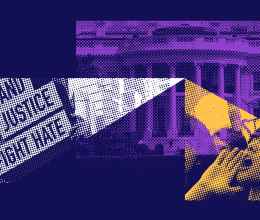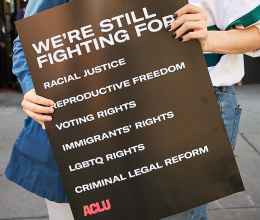
TALLAHASSEE, FL - Today, the Senate Criminal Justice Committee voted to unanimously pass Senate Bill 642, the Florida First Step Act. Despite concerns from advocates that the Florida First Step Act will not get anyone out of prison and doesn’t include any investment in mental health services, substance abuse treatment, educational programs or job training—unlike the Federal First Step Act—the committee voted to pass the bill. In its current form, the Florida First Step Act fails to address glaring racial disparities that permeate every aspect of Florida’s criminal justice system.
Florida Campaign for Criminal Justice Reform (FLCCJR) partners issued the following statements in response to the Criminal Justice Committee’s vote:
“This bill follows the cue of the First Step Act that was signed into federal law last month but only in name,” said Dr. Micah Kubic, executive director of the ACLU of Florida. “To accomplish the considerable reforms provided by the federal First Step Act, Florida legislators cannot overlook solutions that would reduce mass incarceration in our state, such as rehabilitative and substance abuse treatment, much less the impact policies included in the current version of the Florida First Step Act will have on communities of color. Florida legislators should follow the example set by President Trump and bipartisan congressional leaders, rather than ignoring it; that would mean including genuinely meaningful reforms that will immediately reduce incarceration and racial disparities.”
“We are concerned the Florida First Step Act may exacerbate racial disparities in our prison population,” said Shalini Goel Agarwal, senior supervising attorney for the Southern Poverty Law Center. “Florida locks up too many people of color, and the Florida First Step Act fails to squarely acknowledge or address that reality. Extreme racial disparities at all stages of our criminal justice system erode confidence in its legitimacy. Requiring an analysis of the racial impact of criminal justice proposals and passing laws informed by such analysis would help to restore a sense of fairness in the system.”
“Every person deserves a second chance,” said Desmond Meade, president of the Florida Rights Restoration Coalition. “By fully funding mental health and substance abuse treatment programs, this bill could better provide people an opportunity to re-enter their communities. It could also ensure that technical violations of probation or parole do not result in a person returning to jail or prison. We hope to see these kind of improvements in the bill as it progresses.”







